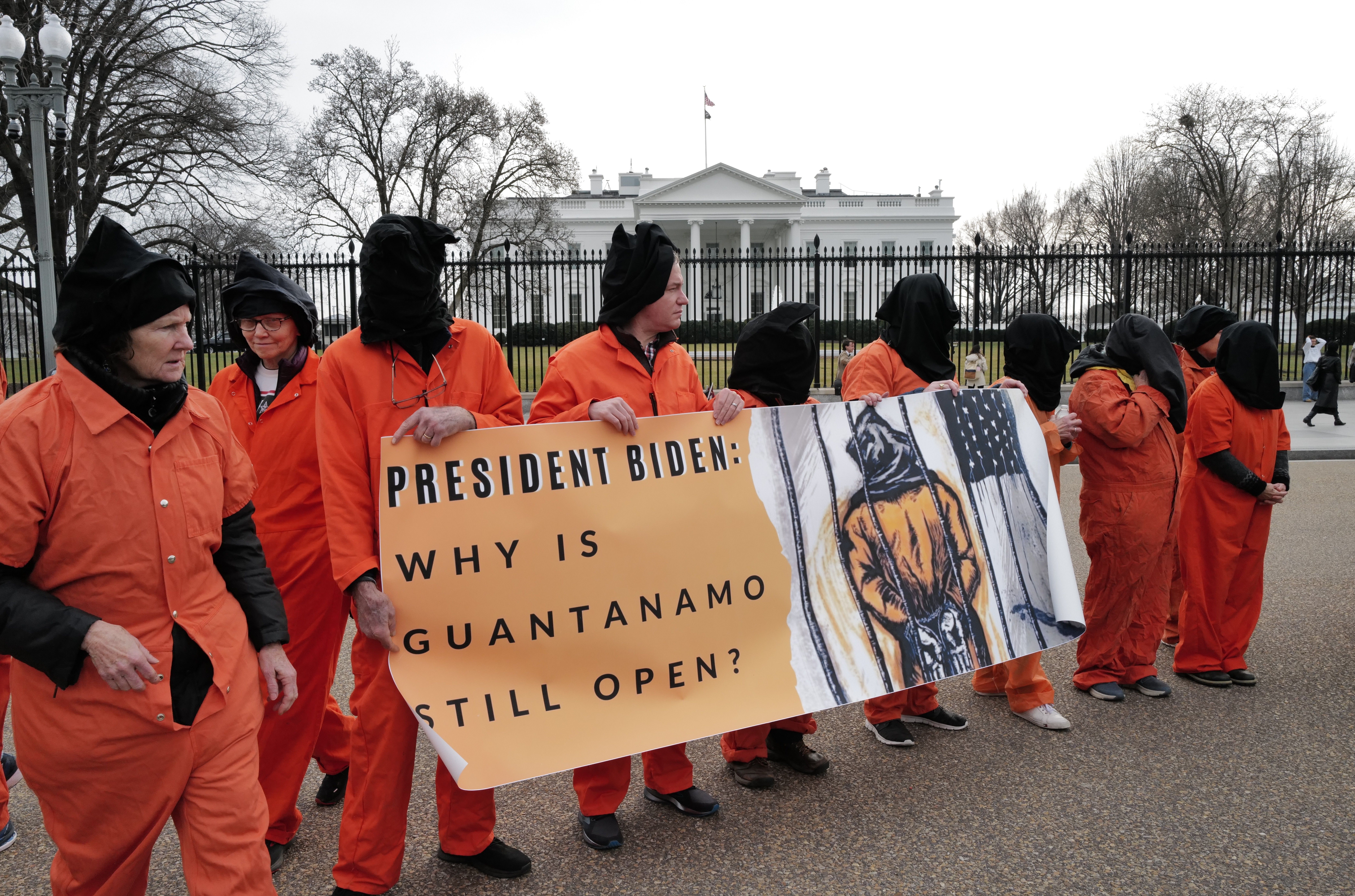Today marks 22 years since the first set of detainees arrived at Guantanamo Bay, a U.S. military base in Cuba. The camp, in the George W. Bush administration’s telling, fell outside of the normal jurisdiction of federal courts and was thus free from pesky concerns like treating detainees humanely or charging them with crimes.
“Gitmo” quickly became a by-word for the worst excesses of the Global War on Terror, including torture and indefinite detention. By 2005, the New York Times editorial board had already called on Bush to shut it down, arguing that such a move “would pay instant dividends around the world.”
Yet all these years later, the military prison remains open, at a cost of roughly $445 million per year. Following promises to close Guantanamo, President Joe Biden has only released 10 detainees. This despite the fact that a United Nations rapporteur alleged just last year that detainees still face “cruel, inhuman and degrading treatment,” and most of the 30 people currently held there have already been cleared for release. This includes the first known victim of CIA waterboarding, who has been detained for over 21 years without charge.
“More than half of those who remain are men the United States itself does not believe need to be detained,” wrote the Center for Constitutional Rights in a statement. “The fact that they continue to languish after two decades is a cruelty that could end tomorrow.”
Roughly 800 people have been detained at the prison at some point over the last two decades. At its May 2003 peak, the facility held 680 detainees.
For CCR, Biden’s inability or unwillingness to close the camp undermines his calls for Israel to avoid repeating Washington’s post-9/11 excesses in its response to last year’s Hamas attack.
“While his warning may have been apt, his use of the past tense was not,” the group argued. “The prison at Guantánamo Bay is one of those mistakes, willfully perpetuated by the Biden administration each day it remains open.”
Even retired Maj. Gen. Michael Lehnert, who led the camp’s opening, now argues that it must be shut down. “To me, the existence of Guantanamo is anathema to everything that we represent, and it needs to be closed for that reason,” Lehnert told AP News in 2021.
So why hasn’t Biden shuttered the camp? The administration, to the extent that it’s weighed in at all since taking office, blames congressional Republicans, who have long opposed closing the facility. But, for Scott Roehm of the Center for Victims of Torture, it’s “largely been a lack of courage and a lack of priority.”
“It's hard to imagine that the State Department couldn't find a single country in the world willing to receive some of these cleared-for-release men,” Roehm told NPR. “And so it appears they're continuing to languish at Guantanamo because that's what senior-most administration officials chose to do.”
Of the 30 remaining prisoners, 10 have been charged with war crimes and one convicted. CCR says the Biden administration should seek plea deals in these cases and double down on its efforts to transfer the rest to other countries.
“The Biden administration needs no new authority or ideas,” argues CCR. “All it needs is the political will and a willingness to do the work.”
- The US is building, rather than tearing down GTMO prison facilities ›
- UN report calls on U.S. government to close Guantanamo Bay ›
- Is Biden actually moving closer to shutting down Gitmo? ›
















